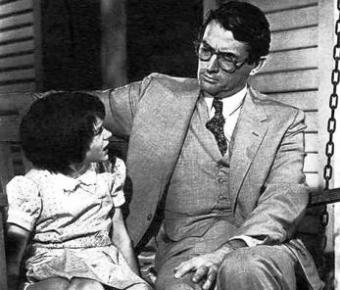The Wall Street Journal’s Peggy Noonan had an interesting take this weekend (July 17) on President Obama’s poll numbers and problems with the economy and other issues.

“…you know what I think people miss when they look at Washington and our political leadership,” Noonan asks. “They miss old and august. They miss wise and weathered. They miss the presence of bruised and battered veterans of life who’ve absorbed its facts and lived to tell the tale.
“…What Mr. Obama needed the past 18 months,” Noonan concludes, “was a wise man.”
And she makes several good points. However, by the end of her column, I found myself largely in disagreement with her conclusions on President Obama.
“During the Cuban Missile Crisis,” Noonan writes, “…the only world leader Kennedy turned to almost daily and confided in was Britain’s 68-year-old prime minister, Harold Macmillan, a veteran of World War I who’d seen the end of empires.”
I’m sure Macmillan’s contribution was helpful, but during those thirteen days in 1962 when the world stood on the brink of nuclear annihilation, events grew critical by the hour and the people whom Kennedy relied upon most – Dean Rusk, Robert Kennedy, Ken O’Donnell, Robert McNamara, McGeorge Bundy and George Ball – had an average age of 45. Even if you add Adlai Stevenson, the 62-year-old statesman whose verbal acuity, courage and tenacity demonstrated itself against Russia’s Ambassador Zorin at the U.N., during a very critical public disclosure, you still come up with an average of 47-years-old.
“On Wall Street,” Noonan points out, “the concept of the statesman—the wealthy man who after a storied career enters public service and takes tough, risky stands on public policy issues—seems largely a thing of the past.”
I don’t know about this one either, Peggy.
Warren Buffett, considered by many to be one of the savviest financial guys on the planet, was recently called in to consult with Obama on the economy as he has in the past. Buffett is 79. And at 82, former Fed. Chair. Paul Volcker chairs The President’s Economic Recovery Advisory Board.
Teddy Roosevelt was a mere 43 when he was sworn in as president, and he seemed wise and capable enough to tackle a variety of issues. In fact, one of T.R.’s signature acts as president was to ask and get Congress to rein in the rather considerable power of large corporations (“trusts”) earning him the nickname of “Trust-buster.”
Noonan points to that icon of fairness and justice, Atticus Finch from Harper Lee’s To Kill a Mockingbird as “wise and grounded.” However, Lee writes that Atticus was nearly fifty. That would make him at least 49, possibly even 46. Through the eyes of the six-year-old Scout – whose point of view the story is told – all adults are old. And the actor who portrayed Atticus, Gregory Peck, was 46 when the film was released.
So, how old is wisdom?
How old do you have to be to have the requisite knowledge, experience and judgment to be considered wise?
“Nine-tenths of wisdom,” Teddy Roosevelt said, “is being wise in time.” Think about the average age of police, firefighters, paramedics, doctors, nurses, and a whole host of specialists who bring their considerable skills, not the least of which is wisdom, to bear on any number of emergencies.
The fact is wisdom knows no age. It is a capability brought about through upbringing, experience, courage, not to mention a whole lot of principle.
It is fidelity to principle that the young Atticus Finch teaches Scout and Gem in Lee’s classic. It is fairness and responsibility that the even younger Teddy Roosevelt used in his argument to Congress regarding large, Wall Street corporations. And it is his duty to all Americans that President Obama took into consideration when he took the political risk in bringing about healthcare and financial reform – issues long deferred by past presidents and congressional leaders.
But you are right about one point, Peggy.
Washington needs more wise men and women, too! There is too much arrogance, conceit, partisanship, ego, pride, whatever you call it – there’s too damn much of it in both parties. But Washington also needs a lot more humility, honor, as well as a demonstrable focus on principle to bring about the kind of change that Americans will respect and look upon as acceptable progress.
“We need to remember,” Mario Cuomo writes in Reason to Believe, “there is a place for ideology, but it is not first place. First place goes to good sense, no matter what political badge it happens to be wearing at the moment. Sometimes that’s common sense… other times it may mean uncommon sense. We need to get beyond the beguiling simplistics and sound bites, blow away the blue smoke, take down the political mirrors, and be willing to accept the truth when we find it.”
Comments









